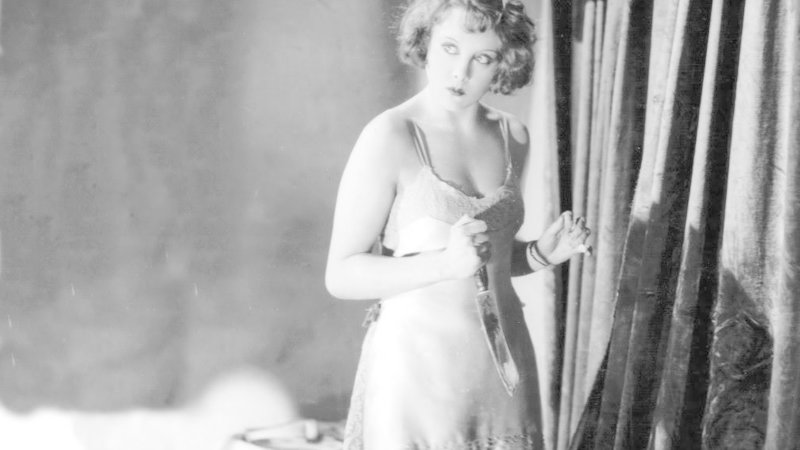This year the Festival’s popular collaboration with the Auckland Philharmonia Orchestra features the ninth and final silent film directed by young master of suspense Alfred Hitchcock. With classic Charlie Chaplin short Easy Street.

Blackmail is a wild ride, a darkly comic thriller to which Neil Brand’s score provides a beautiful response.
Screened as part of NZIFF 2012
Hitchcock's Blackmail 1929
This year the Festival’s popular collaboration with the Auckland Philharmonia Orchestra celebrates two sons of London whose names loom forever large in the movie pantheon: Charlie Chaplin and Alfred Hitchcock. Composer and frequent Festival visitor Neil Brand hails from Mid Sussex himself. He sees Chaplin’s classic short Easy Street as closely aligned to his London origins. Though shot in California, its streets look like a London slum – and those coppers don’t exactly resemble the LAPD. We couldn’t be happier about presenting Neil’s new scores for Chaplin’s short and Hitchcock’s final silent feature Blackmail on one very lively programme. (We cannot recommend Blackmail for small children.)
Two years ago the British Film Institute began a major fundraising campaign in support of the National Archive’s biggest single project to date: the full restoration of Alfred Hitchcock’s nine surviving silent films. Now, thanks to the support of BFI members, Hitchcock fans, trusts and foundations, corporate partners, rights holders and archives around the world, audiences can encounter these classics afresh. The Civic audience will be among the first in the world to share the bounty: our screening of the restored Blackmail takes place just a month after its premiere at the British Museum – the scene of the film’s climactic chase.
“In Alfred Hitchcock’s Blackmail, Alice White (Anny Ondra) is the bored girlfriend of a dour Scotland Yard detective, with no interest in going to the movies as she’s ‘seen it all before’. As a rejoinder to her indifference, cinema’s great sadist swiftly dispatches one of his very first blondes into the hands of a seductive painter, whose attempted rape is scuppered when she frantically kills him in self-defence.
It is both Hitch’s last silent film and his first talkie. Filmed in 1929 in two versions released a couple of months apart, it straddles cinema’s first great revolution… Blackmail is a wild ride, a darkly comic thriller to which Neil Brand’s score provides a beautiful response. Deeply engaged with the images, the music enacts a playful tussle that thickens the texture of Hitchcock’s drama. The style is reminiscent of some of Bernard Herrmann’s classic scores, a neat move that uncovers echoes between the director’s early and late work… Brand often appears to be moulding the narrative. He stretches out moments of suspense to breaking point before quickening the pace, using effects to create scenes of great comedy… It’s remarkable to witness an act of musical creation that not only works to preserve cinema history, but makes the old speak to us in new ways.” — James Mansfield, Little White Lies
Composer Neil Brand has been accompanying silent films for over 20 years. He has written scores for TV documentaries and radio dramas, music for theatre, two musicals and four radio plays, and is considered one of the finest exponents of improvised silent film accompaniment in the world. He has dazzled New Zealand audiences several times as a guest of NZIFF. Neil’s scores for both films have been arranged for orchestra by another NZIFF Live Cinema regular, composer and conductor Timothy Brock.
Conductor Brett Kelly is one of Australia’s leading resident conductors. In recent years Brett’s engagements have included numerous return visits to the Adelaide, Melbourne, Sydney, Queensland, Tasmanian and West Australian symphony orchestras, as well as the Auckland Philharmonia Orchestra.